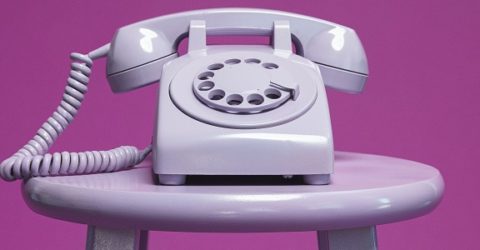What’s happening to Britain’s old copper phone lines?
As landlines are supplanted by newer fibre optic technology, this older connectivity is being dismantled and disposed of.

In the age of dial-up internet, copper phone lines provided an umbilical cord to the exciting new world of websites and online services.
In an age when over two thirds of UK households are connected to fibre broadband networks exceeding 100Mbps, copper phone lines are nothing short of an anachronism.
This 20th century technology simply isn’t up to the task of distributing the volumes of data modern societies are now demanding (and generating) at acceptable speeds.
Networks of fibre optic cabling are being installed the length and breadth of the UK, by former monopoly holder Openreach and cable market leader Virgin Media.
Full fibre is also being installed by a growing array of locally-based suppliers, as we explained last year.
This is great for consumers, comprehensively surpassing the ADSL and Fibre to the Cabinet speeds (11Mbps and 35-65Mbps respectively) achievable over copper connections.
But what will happen to all those old copper lines when they’re no longer needed?
After all, it’s not as if consumers are retaining domestic landlines in the age of full fibre connectivity and high definition video calling.
The number of UK homes with a landline fell by four million during the first two decades of this century, and the pace of abandonment is increasing.
One in five households no longer bother with a landline, which means there’s no benefit to having a copper cable attached to your home.
The company with primary responsibility for those cables agrees…
It’s a fair cop’
As the infrastructure wing of the UK’s former telecommunications monopoly holder, Openreach has the job of maintaining the copper phone network as it declines in popularity.
This includes the network of local exchanges serving specific towns, villages and suburbs.
The migration away from copper connectivity happens in two distinct stages.
Firstly, traditional voice-based services are relocated to IP-based technologies, in a process which should be completed within the next four years.
Secondly, Fibre to the Premises broadband deals will be rolled out, using fibre optic cabling instead of copper wires to distribute faster connectivity into individual homes.
Once 75 per cent of properties connected to a particular exchange can access FTTP services, Openreach can start switching off the copper network in favour of the faster fibre network.
This generally takes several years owing to the slow rate of consumer adoption – usually when a contract ends and they’re offered far quicker connectivity for not much more money.
Exchange and marked
The list of exchanges scheduled for copper decommissioning is expanding all the time, and there are presently five tranches in the early stages of FTTP conversion.
(If you want to know whether your exchange is one of them, an internet search for “Openreach switching off copper locations” should bring up a 12-page list from last August.)
Once the copper cables have been decommissioned, they’re ready to be dismantled and recycled, since copper won’t play any role in tomorrow’s telecommunications infrastructure.
Its ability to transfer data pales in comparison with fibre optic cables, which managed to transmit one petabit of information per second during laboratory testing last year.
That’s a hundred million times faster than the 11 megabits per second a typical copper line is able to carry.
The copper itself may be relatively cheap to buy as scrap metal or recycled waste, but it still commands significant value in bulk.
It could be recycled into copper tubing, white goods components, electrical cabling and even kitchen utensils.
If your broadband is still stuck in the copper wired ADSL doldrums, it’s probably time to upgrade. Get a better broadband deal with a fibre broadband connection – check your postcode today:






